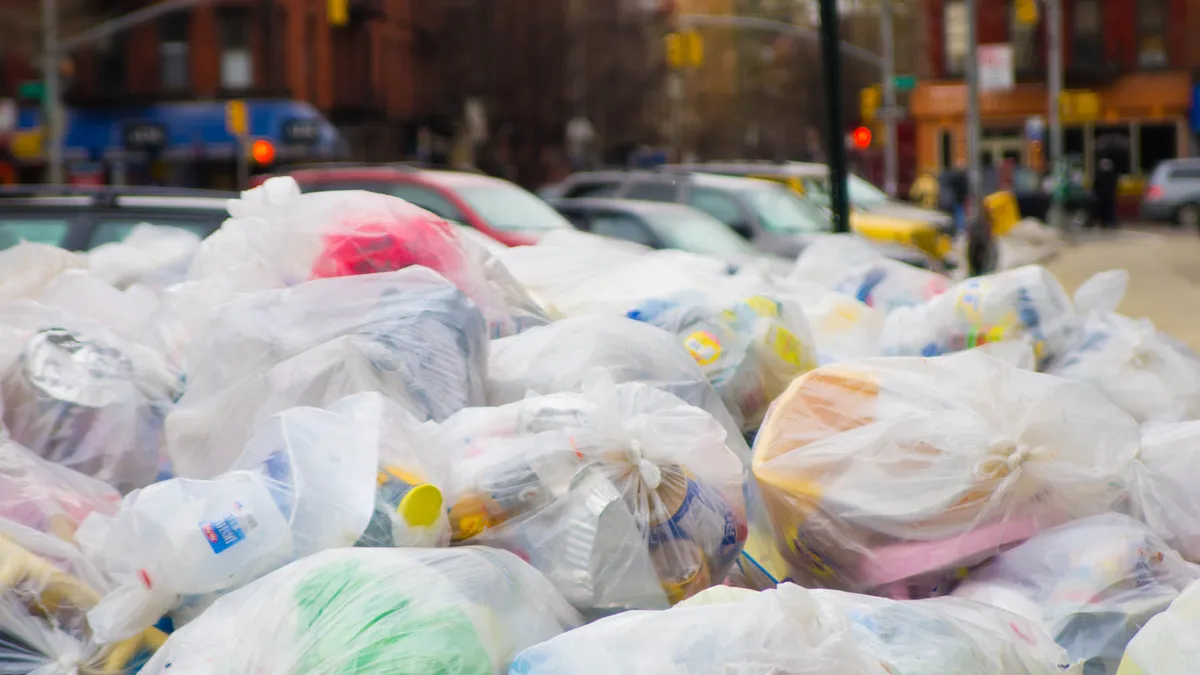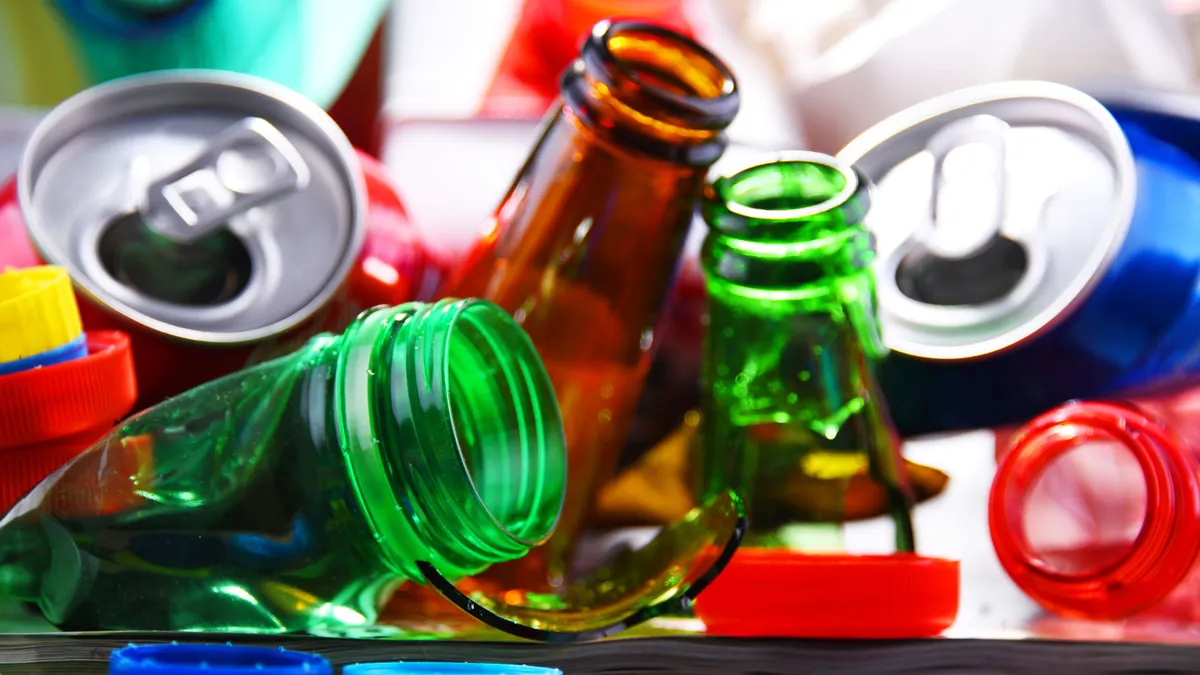The humble garbage bag may be an ideal candidate to spur more sustainable plastic film recycling end markets, experts said at a plastic recycling webinar hosted by the Northeast Recycling Council (NERC) on Tuesday.
Recyclers and plastics producers on the panel discussed the barriers and opportunities with recycling polyethylene (PE) film plastic, the kind used to make plastic grocery store bags, wrap for pallets and even bubble wrap. During the wide-ranging discussion, speakers noted it's a valuable feedstock ideal for making many types of new products, including trash bags.
Industry leaders are looking for more long-term end markets for post-consumer resin (PCR) made from PE film, and they see trash bags as one major avenue for using recycled content.
More states are beginning to mandate minimum recycled content standards for bags, and the public is becoming more conscious of reducing its single-use plastic purchases, panelists said.
Trash bags aren't required to be a certain color, meaning manufacturers can use a broad color range of PE film to make the bags, and the higher recycled content helps avoid putting virgin plastic directly into landfills, said Eadaoin Quinn, director of business development and procurement at EFS Plastics, which manufactures plastic resins made from recycled PE film. "No one should be making a trash bag out of 100% virgin plastic," she said.
Amid the COVID-19 pandemic, consumers began using more single-use bags than before because of early health and sterility concerns. At the same time, collection of this material for recycling has faltered, panelists said. One reason is that a significant portion of plastic film collected for recycling comes from strategic drop-off sites at local grocery and retail stores, where customers can drop their bags and packaging in a box near the front door.
Many of these stores suspended their take-back program when the pandemic started, and have only recently begun collection again, said Tonya Randell of sustainability consultancy STINA (formerly known as More Recycling).
Before the pandemic, the amount of PE bag and film collected for recycling in the U.S. and Canada had increased steadily since 2015. Plastic bags and wraps typically do not get recycled in curbside bins, and consumers often aren’t sure what to do with these bags when they’re done using them, said Shari Jackson, director of film recycling at the American Chemistry Council (ACC).
Efforts like the Film Dropoff Directory, which helps people find locations to recycle their bags, and the WRAP program, the ACC's education and outreach effort that teaches the public how to recycle these bags, are important strategies for directing consumers to plastic film drop-off sites, she said.
A notable incentive for increasing the percentage of PCR in trash bags and other recycled products is by urging lawmakers to adopt recycled content mandates or procurement policies, panelists said. EFS spearheaded the Recycle More Bags Coalition along with other recycling industry organizations and plastics producers, which urges legislation to require 20% PCR content in garbage bags and plastic carryout bags by 2025.
States such as California already mandate a 40% minimum PCR content in reusable plastic retail bags. Quinn is tracking a bill in New Jersey that would require trash bags consist of at least 10% post-consumer recycled content.
Companies are already making plastic bags with minimum PCR content well above 10%, said Cherish Miller, whose company, Revolution, manufactures trash bags containing between 70% and 97% PCR.
Minimum content standards of any kind could help recycled plastic film markets, in part because the price for virgin plastic resin is usually so much lower than PCR, she said. “If you treat it like virgin, we are always going to run into this price thing. Having a commitment to PCR is what is needed,” Miller said.
In a typical month, the company and others like it struggle to compete with usually-low virgin resin prices. During a recent pricing "blip," where prices had flipped and PCR was significantly lower in price than virgin PE, Quinn said EFS sold out of its PCR stock, "which proves to me that our material is easily usable … it’s just a matter of pricing."
Brands that use PCR in their bags could also more clearly label their products to note its recycled content, which may motivate consumers to spend slightly more on a product because it is seen as more environmentally friendly, said Sandi Childs, director of film and flexible programs for the Association of Plastic Recyclers. The organization is considering issuing a "trash bag challenge" to companies that participate in its Demand Champions program, which encourages the purchase of PCR to drive demand in the recycling marketplace.
"We could challenge companies to take that step and not be afraid to tell consumers that their product has recycled content in it, because that's a good thing," she said.


















